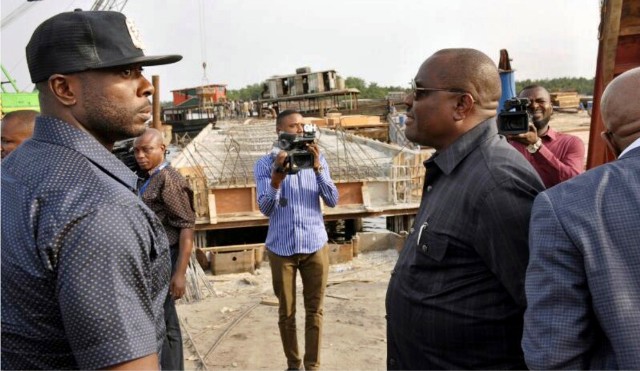Business
‘Sub-Saharan Africa GDP Growth Up In 2017’

Economic growth in Sub-Saharan Africa is seen rising between this year and 2019, helped by better commodity prices and improved global conditions, the World Bank said on Wednesday.
The bank said, in its latest “Africa’s Pulse” report, that economic growth was seen expanding to 2.6 per cent this year and further to 3.2 per cent in 2018 and 3.5 per cent a year later.
Sub-Saharan African growth was an estimated 1.3 per cent in 2016, the World Bank said.
“The upturn in economic activity is expected to continue in 2018-19, reflecting improvements in commodity prices, a pickup in global growth, and more supportive domestic conditions,” the bank said.
The bank said the 2016 growth was the worst for the region in more than two decades, hurt by poor performance in Nigeria, South Africa and Angola.
“This low growth rate was driven mainly by unfavourable external developments, with commodity prices remaining low, and difficult domestic conditions,” the report said.
It said growth in Nigeria contracted by 1.5 per cent, due to tight liquidity, delays in implementing its budget, and militant attacks on oil pipelines.
The bank said Angola’s growth slowed due to a fall in oil production while South Africa’s economic expansion slowed to 0.3 per cent due to contractions in the mining, manufacturing, and the effects of drought on agriculture.
“Excluding these three countries, growth in the region was estimated to be 4.1 per cent in 2016,” the report said.
Transport
Automated Points Concession : FAAN Workers Gave 72hrs To Revise Decisions In PH

Transport
FAAN Announces Pick-Up Points for Go-Cashless Cards

Business
Fidelity Bank To Empower Women With Sustainable Entrepreneurship Skills, HAP2.0
-
Politics3 days ago
2027: NIGERIANS FAULT INEC ON DIGITAL MEMBERSHIP REGISTER DIRECTIVE
-

 Environment3 days ago
Environment3 days agoLAWMA Director Says Sweeping Reforms Have Improved Waste Collection
-
Politics3 days ago
LP Crisis: Ex-NWC Member Dumps Dumps Abure Faction
-

 Politics3 days ago
Politics3 days agoUmahi Dismisses Allegations On Social Media, Insists On Projects Delivery
-

 Sports3 days ago
Sports3 days agoAbia Not Sure To Secure continental Ticket
-
Sports3 days ago
La Liga: Yamal Records First Career Hat-trick
-
Politics3 days ago
NATASHA ELECTRIC VEHICLES INITIATIVE IN KOGI CENTRAL
-

 Sports3 days ago
Sports3 days agoCity Survive Leeds’ Challenge At Elland Road

